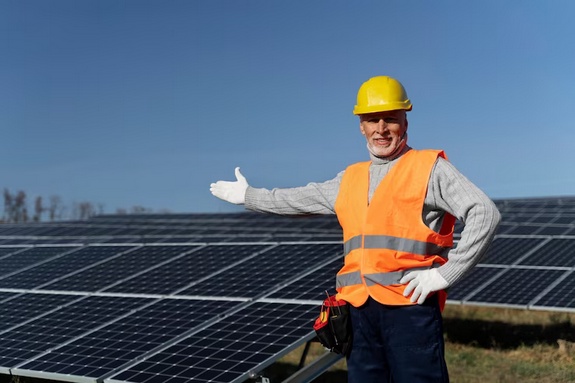Introduction
As solar energy continues to play a pivotal role in the global pursuit of sustainable power sources, the lifecycle management of solar components becomes increasingly crucial. Among these components, solar inverters stand out as vital elements in converting solar energy into usable electricity. This article delves into the lifecycle of solar inverters, exploring the challenges posed by their disposal and the emerging solutions in the realm of circular economy and recycle solar invertors.
The Ascendancy of Solar Inverters and Lifecycle Dynamics
Solar inverters serve as the linchpin in the process of converting direct current (DC) generated by solar panels into alternating current (AC) for use in homes and businesses. The lifecycle of a solar inverter is marked by distinct phases, from manufacturing and installation to operation and, eventually, decommissioning. As the global deployment of solar energy systems escalates, understanding and addressing the end-of-life considerations of inverters become imperative.
Challenges in Solar Inverter Disposal
The disposal of solar inverters presents a set of challenges, primarily due to their complex composition and the potential presence of electronic waste. Inverters contain various materials, including metals, circuit boards, and electronic components. The challenge lies in separating and recycling these materials efficiently, considering the diverse elements within inverters and the potential environmental impact associated with improper disposal.
Environmental Impact of Inadequate Disposal
Improper disposal of solar inverters can lead to adverse environmental consequences. The electronic components within inverters may contain hazardous materials such as lead and other toxic substances. If not handled properly, these materials can leach into the soil and water, posing risks to ecosystems and human health. Additionally, the energy-intensive manufacturing process of inverters intensifies environmental concerns when they are not recycled.
The Shift Towards Circular Economy in Inverter Lifecycle
Recognizing the challenges posed by linear and wasteful models of consumption, the solar industry is increasingly gravitating towards circular economy principles. The transition from a linear to a circular model involves designing products with end-of-life considerations in mind, prioritizing recyclability, and minimizing waste. Applying circular economy principles to solar inverters signifies a paradigm shift towards sustainability and responsible resource management.
Innovations in Inverter Design for Recycling
Designing solar inverters with recyclability in mind is a critical step in embracing circular economy principles. Manufacturers are exploring innovative designs that facilitate easier disassembly and material separation. Modular designs, where components can be easily replaced or upgraded, contribute to a more sustainable approach. By prioritizing materials that are readily recyclable, the industry aims to reduce the environmental impact of inverter disposal.
Recycling Solutions for Solar Inverters
Efficient recycling solutions are integral to addressing the end-of-life challenges associated with solar inverters. Mechanical processes, such as shredding and sorting, are employed to disassemble inverters and recover valuable materials like metals and circuit boards. Advanced recycling technologies, including automated disassembly and robotic sorting, are emerging to streamline the process and improve resource recovery. The goal is to establish a closed-loop system where materials from decommissioned inverters are reused in the manufacturing of new products.
Technological Advancements in Inverter Recycling
Technological advancements play a key role in enhancing the efficiency and sustainability of inverter recycling. Innovations such as artificial intelligence (AI) for automated sorting, robotic systems for disassembly, and advanced separation techniques are transforming the landscape of electronic waste recycling. Research and development efforts are focused on minimizing energy consumption during the recycling process and maximizing the recovery of valuable materials.
Consumer Awareness and Responsible Disposal
Educating consumers about the importance of responsible inverter disposal is crucial for fostering a circular economy. Consumers need to be aware of recycling options and encouraged to choose certified recycling facilities. Manufacturers play a role in providing clear information to consumers about the recyclability of their products and promoting responsible end-of-life practices.
Conclusion
As the world embraces solar energy as a key player in the transition to sustainable power sources, the lifecycle management of solar components becomes a critical consideration. Shifting from a linear model to a circular economy approach in the lifecycle of solar inverters signifies a commitment to responsible and sustainable practices. Innovations in design, recycling technologies, and consumer awareness contribute to a holistic solution for the end-of-life challenges posed by solar inverters. From the current linear model to a circular paradigm, the journey of solar inverters exemplifies the industry's commitment to a more sustainable and environmentally conscious future.


No comments yet